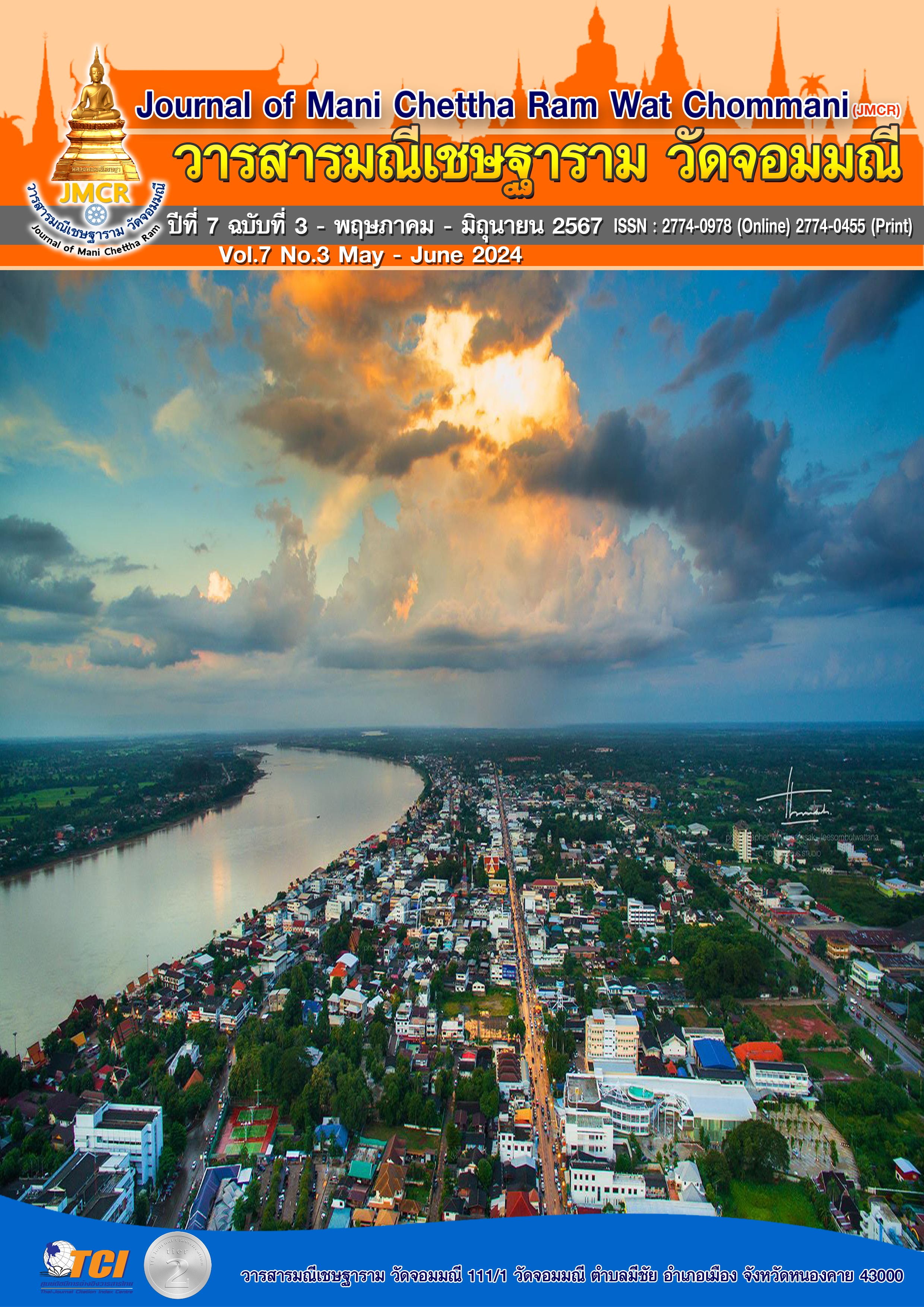DESIRABLE COMPETENCIES OF FOREIGN ENGLISH TEACHERS UNDER THE SECONDARY EDUCATIONAL SERVICE AREA OFFICE NONTHABURI
คำสำคัญ:
Guidelines, Desirable Competencies, Foreign English Teachers, under The Secondary Educational Service Area Office Nonthaburiบทคัดย่อ
Competency standards serve as a guide for use in teacher professional development toward realizing 21st century skills and practices within a context that is regionally appropriate and relevant with the global practices. Competency frameworks will help teachers to improve their performance to bring about the quality education for all students. The objectives of this research were to 1) study the level of desirable competency level of foreign English teachers, and 2) to compare the opinions of foreign English teachers on the desirable competencies classified by educational level and work experience. The sample is consisted of 108 foreign English teachers for questionnaires. The research instrument was a questionnaire with content validity. IOC values between .67-1.00 and a reliability value of .95. The data were analyzed by using frequency, percentage, mean, standard deviation, t-test, One-way ANOVA, and LSD.
The results of the research were as follows: 1) the desirable competency level of foreign English teachers was at high level in overall, except for the aspect of Strategies (S) which at the highest level, ranking from the highest to the lowest mean: Strategies (S), Behavior (B), Knowledge (K), and Social Skills (S), and 2) the opinions of foreign English teachers, classified by education level and work experience were not different. With teaching as a complex job, a teacher uses a combination of competencies to deal with the changing education context. With regional integration, the challenge becomes more complex to make sure that the teachers possess the essential competencies necessary for optimal performance. Moreover, competencies serve as a frame of reference to address the evolving demands of the teaching profession.
เอกสารอ้างอิง
Abbotsford School (2022). Teaching competencies. Retrieved August 25, 2022, from https://hr.abbyschools.ca/node/11936
Abdo, S. (2020). Professional competence 1. Retrieved August 16, 2022, from https://www.teachingenglish.org.uk/article/professional-competence-1
Ahmad, N. et.al. (2018). Importance of teachers’ competency through students’ perception in relationships between parental involvement and motivation with students’ achievement. Retrieved August 10, 2022, from https://www.researchgate.net/publication/330001392
Alcaraz, L. & Sarracino, D. (2008). Competencies of language teachers. Retrieved August 19, 2022,fromhttp://idiomas.ens.uabc.mx/plurilinkgua/docs/v4/2/ArticleDavidCompetenciesEN.pdf
Anantapol, W., Chobpon, P., & Keeratikorntanayod, W. (2018). Developing English proficiency standards for English language teachers in Thailand. Manutsayasat Wichakan Journal. Bangkok: Thailand
Caena, F. (2014). Teacher competence framework in Europe. Policy-as-discourse and policy-as-practice. European Journal of Education, 49 (3), 311-331
Creswell, J.W. (2013). Research Design: Qualitative, quantitative, and mixed methods approaches. 4th Edition, SAGE Publications, Inc., London.
Hamra, A. et.al (2013). The competence of primary school English teachers in Indonesia. Journal of Education and Practice, 4, (11), 2013
Jarumetheechon, T. (2013). The development of a model for assessing teacher competency in Primary Education Commission. Thailand: Mahasarakam University.
Jenhatthakankit, S. (2022). Personal communication about schools under the Secondary Educational Service Area Office Nonthaburi. SPM Nonthaburi office: Nonthaburi, Thailand
Krejcie, R. & Morgan, D. (1970). Determining sample size for research activities. Educational and Psychological Measurement: 30, 607-610.
Liu, X., Zhang, Y. & Ye, F. (2021). Teaching competencies of language teachers in research universities in Beijing: Perspectives from SoTL and institutional theory. Retrieved August 15, 2022, from https://www.researchgate.net/publication/351185489
Matchara, T. (2022). The Results of using the model of teacher competency development in educational Institutions by using the Professional Learning Community (PLC) under the Office of Secondary Education Service Area, District 24. MBU Education Journal: Faculty of Education Mahamakut Buddhist University,10(1).
McClelland D.C. (1973). Testing for competence rather than for intelligence. American Psychologist, 28 (1), 1-14.
Ministry of Education (2018). Southeast Asia Teachers Competency Framework (SEA-TCF). Bangkok: The Teachers’ Council of Thailand.
Nessipbayeva, O. (2012). The competencies of the modern teacher. Retrieved April 10, 2024, from https://files.eric.ed.gov/fulltext/ED567059.pdf
Office of Nonthaburi Secondary Educational Service Area (2022). Information about population of Nonthaburi Secondary Educational Service Area. Retrieved December 9, 2022, from https://spmnonthaburi.go.th
Petchroj, L. & Chamniprasat, A. (2019). Research methods. Bangkok : Pimdee Printing Walailak.
Pogosian, V. (2008). The Russian system of training teachers of foreign languages for young learners: History and new developments. Seminar Papers on Early Foreign Language Education: University of Joensuu, pp. 44-55
Roegiers, X. (2000). A pedagogy of integration. Retrieved September 01, 2022, Fromhttps://www.deboecksuperieur.com/ouvrage/9782804160098-la-pedagogie-de-l- integration
SEA-TCF (2018). Southeast Asia Teachers Competency Framework (SEA-TCF). Bangkok: The Teachers’ Council of Thailand
Sereerat, B. (2022). Teachers and learners’ competencies development. Faculty of Education, Silpakorn University. Nakhon Pathom: Thailand
Spencer L. & Spencer S. (1993). Competence at work: Model for superior performance. John Wiley & Sons, NY.
Selvi, K. (2006). Phenomenology of lifelong learning. Analecta Husserliana: The Yearbook of Phenomenological Research. Ed. Anna-Teresa Tymieniecka. Dordrecht: Springer. Vol. XC, 483-500
Selvi, K. (2007). The English language teachers’ competencies. The Fifth International JTET Conference. Hungary: The Conference conducted at the meeting the University of Debrecen: 1-10
Umiyati, J. (2017). The profile of English teachers’ professional competence and students’ achievement at SMA Negeri 1 Enrekang. Edumaspul-Jurnal Pendidikan, 1 (2), 61-77.




